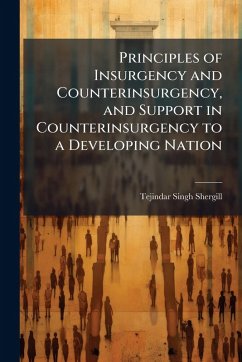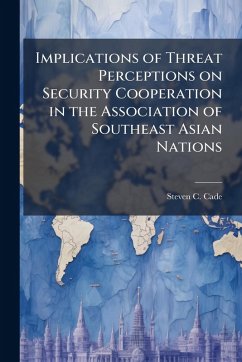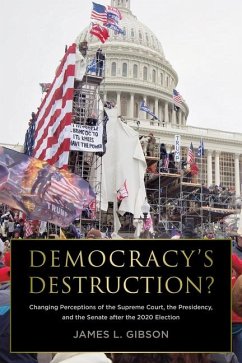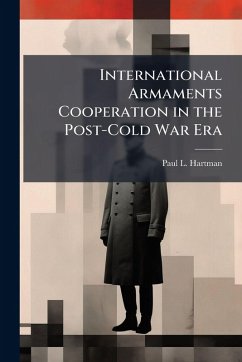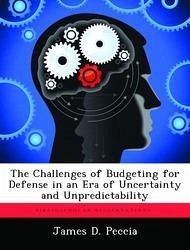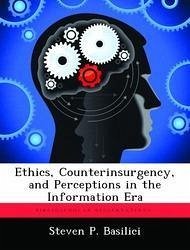
Ethics, Counterinsurgency, and Perceptions in the Information Era
Versandkostenfrei!
Versandfertig in über 4 Wochen
17,99 €
inkl. MwSt.

PAYBACK Punkte
9 °P sammeln!
From antiquity to the present there has been cultural tension over different views of what is right and what is wrong, and every culture desires to apply their values universally to the rest of the world. When a nation chooses to go to war and exercises its sovereign right to use military force, it must act in a way that is ethically acceptable and morally justifiable in the eyes of its people. When one is perceived to act ethically one is acting in accordance with the perceiver's values. Defining what these values are and determining, in the broader sense, whether they are right or wrong is n...
From antiquity to the present there has been cultural tension over different views of what is right and what is wrong, and every culture desires to apply their values universally to the rest of the world. When a nation chooses to go to war and exercises its sovereign right to use military force, it must act in a way that is ethically acceptable and morally justifiable in the eyes of its people. When one is perceived to act ethically one is acting in accordance with the perceiver's values. Defining what these values are and determining, in the broader sense, whether they are right or wrong is not the issue of this paper. The central issue of this paper is analyzing the affects caused by the perception that actions do not support stated values when that perception is created in the information environment. No country in the world today can act autonomously; each must justify its actions or inevitably face failure. Especially challenged is the country that justifies its choice to go to war based upon universally stated values and then in the conduct of that war consistently act in ways that do not support those values. The thesis of this study is that when physical actions that are not consistent with a nation's stated values are introduced into the information environment, they can be strategically adverse to that nation. Stated another way, in the present Information Era, it is very difficult for a government, especially a foreign, democratic government, to win a counterinsurgent war when the actions of their soldiers do not consistently support stated values. What is the importance of the relationship between ethics and counterinsurgency? In a single word, the answer is perception. The case of a Western, democratic government conducting a counterinsurgency in a foreign country is perhaps the best scenario with which to test this thesis, because of the stated Western values of freedom of speech and human rights. However, this thesis does not just apply to counterins This work has been selected by scholars as being culturally important, and is part of the knowledge base of civilization as we know it. This work was reproduced from the original artifact, and remains as true to the original work as possible. Therefore, you will see the original copyright references, library stamps (as most of these works have been housed in our most important libraries around the world), and other notations in the work. This work is in the public domain in the United States of America, and possibly other nations. Within the United States, you may freely copy and distribute this work, as no entity (individual or corporate) has a copyright on the body of the work. As a reproduction of a historical artifact, this work may contain missing or blurred pages, poor pictures, errant marks, etc. Scholars believe, and we concur, that this work is important enough to be preserved, reproduced, and made generally available to the public. We appreciate your support of the preservation process, and thank you for being an important part of keeping this knowledge alive and relevant.



